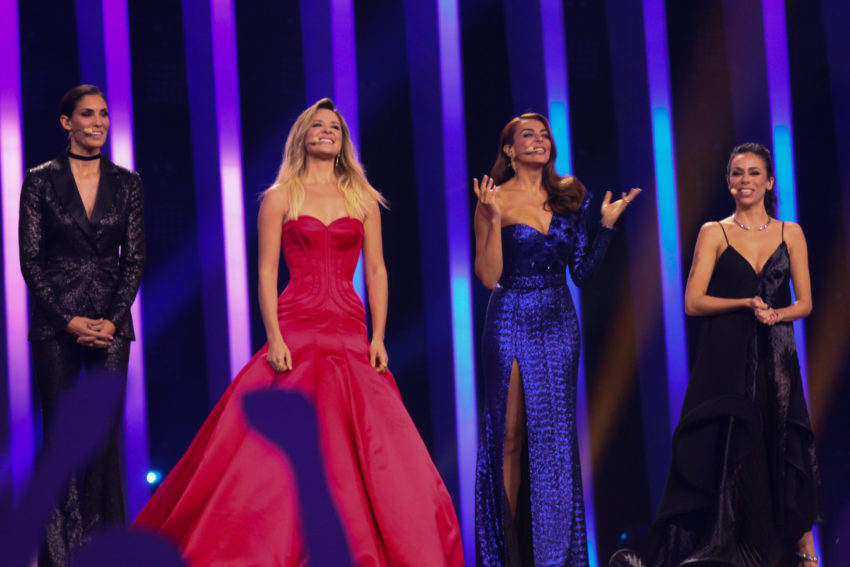
Over the years, we have seen a million different ways of presenting the Eurovision Song Contest. Some presenters do it all by themself, while others present the show in pairs or in a group. In 2018 we get four presenters.
The Eurovision Song Contest began in Lugano in 1956 with just one host. Lohengrin Filipello presented 14 songs from seven countries. He is to this date the only male presenter that has hosted the contest by himself. Until 1978 the contest was presented by one host only, but suddenly we saw a male-female pair presenting the contest.
The 1999 edition was for the first time Eurovision was presented by three hosts – one man and two women. Since then we’ve seen male and female presenters – and one, two and three in the same year. But this year we see something new. After three male hosts last year, we now have four female hosts – although we almost saw the same in Vienna in 2015, a contest that had three female hosts and Conchita Wurst in green room.
Lisbon 2018: Sílvia Alberto, Daniela Ruah, Catarina Furtado and Filomena Cautela
Today at the first dress rehearsal for the first semi-final of Eurovision 2018 we saw them in action for the first time. All four come on stage in a big Good evening Europe.
Sílvia Alberto, Daniela Ruah, Catarina Furtado and Filomena Cautela all wear spectacular dresses, but it’s Sílvia’s big red dress that steals the picture. The introduction is very Eurovision-like, they come with some sailor jokes and naval references – the good old ship Eurovision – and inform the viewers of the voting procedure, Filomena Cautela is then sent to the green room far, far away – and the show goes on with the songs.
After Lithuania, song number 6, we have a commercial break and the hosts are back. Or mostly it’s Filomena Cautela that’s back. She is in the green room, which is not green at all. She says hi to a lot of the contestants and she’s handed a microphone and replies “thank you sailor boy”. Then she talks to few of the contestants and play a small piano toy. Later she gets a card also with a “thank you sailor boy”. And then the commercial break ends and you get a reminder to download the Eurovision app.
After Croatia we have another break form surfing sound waves, as the host say. Again. we go to the green room with Filomena Cautela. This time we get a sneak peak of what’s inside Mikolas’ bag (Czech Republic) and Alekseev (Belarus) gives Filomena a red rose.
After all the songs have been performed, we see Filomena Cautela with a Eurovision fan in the audience, who she asks for a selfie #allaboard. In between the recaps the hosts have printed several thousand ballot papers from the viewers, but they’re turned into paper boats, as it takes too long to count the votes that way. Instead we meet the two persons who take all the voting calls from the viewers and say “thank you”. Filomena takes one call and just keeps talking and talking. Later you see the presenters play the new Eurovision Song Contest board game.
All in all, the time slot between last song and the revealing of the ten finalists is filled with a lot of interviews, small talk, little pre-recorded films etc. But there is no interval act on stage, as we are used to.
If you were hoping for some music and cabaret-like show performances from the hosts – like for example Petra Mede and Måns Zelmerlöw in 2016 – you’ll get disappointed. The hosts this year – based on first semi-final – are talking a lot more, and it’s kind of similar to what we saw in Vienna three years ago.



















